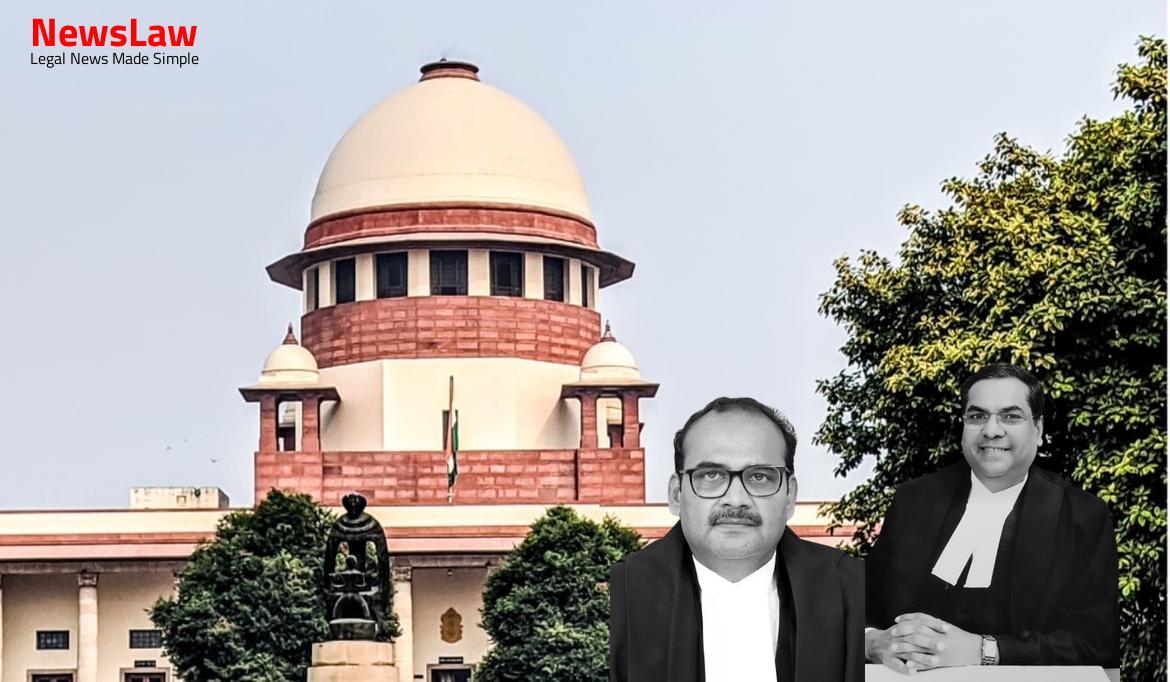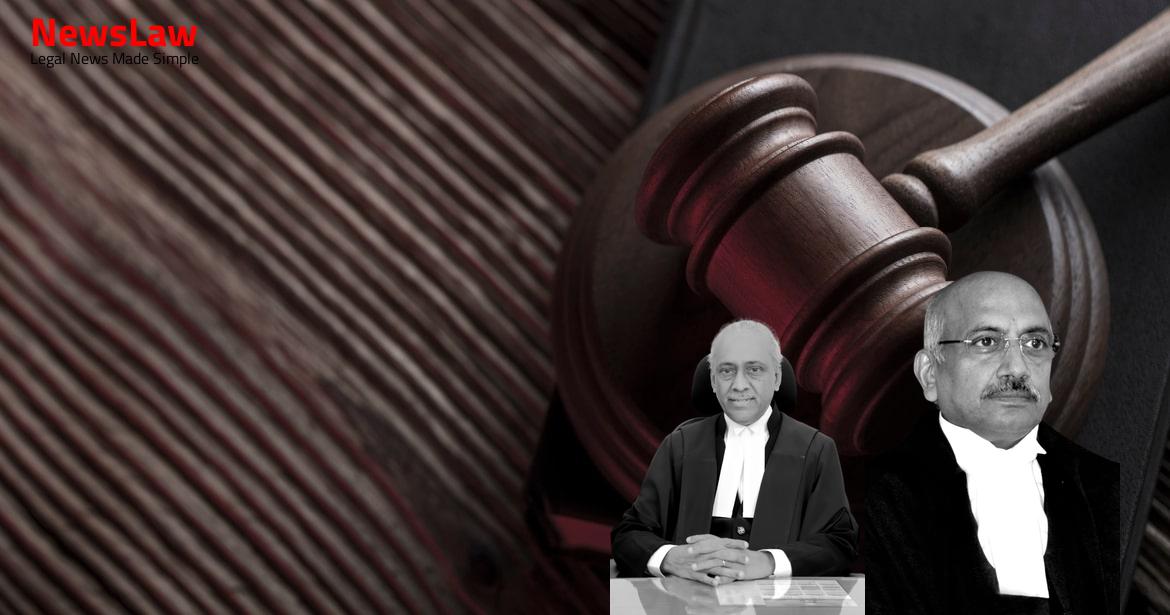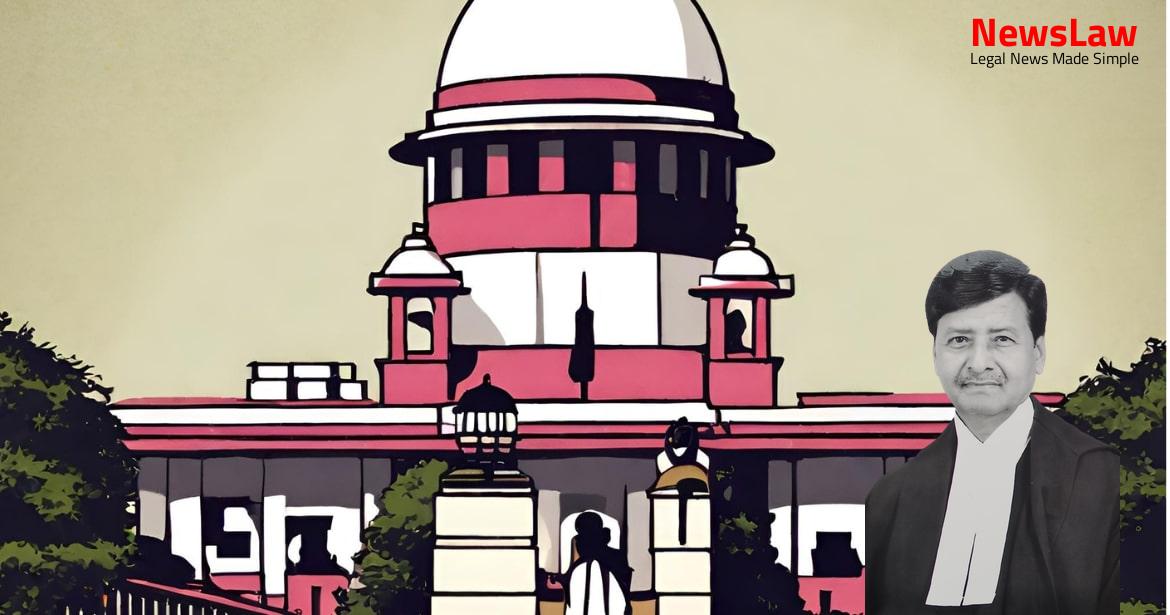In a recent legal case, a landmark judgment was made regarding the calculation of compensation for a child’s death in a road accident. The High Court’s detailed legal analysis and ruling have significant implications for similar cases in the future. This blog delves into the intricacies of the court’s assessment and its impact on child rights and compensation law.
Facts
- Appellant filed a Claim Petition seeking compensation under the Motor Vehicles Act.
- The child, Bankee Bihari, aged 12, was hit by a Commander Jeep and died on the way to the hospital.
- The incident occurred on 29.7.2003 while the child was playing in front of his house.
- The appellant is the mother of the deceased child.
- The Motor Accidents Claim Tribunal (M.A.C.T.) initially granted compensation of Rs. 1,50,000/-
- The claimant challenged this award by filing Miscellaneous Appeal No 16 of 2013
- The High Court of Jharkhand at Ranchi increased the compensation to Rs. 2,00,000/-, matching the value claimed in the petition
Also Read: Analysis of Bail Conditions in Criminal Appeal No. INSC 48/2024
Arguments
- High Court erred in assessing the less quantum for notional income of the deceased without adding ‘future prospect’ while computing the compensation.
- Adequacy of grant of compensation has been questioned in the present appeal.
- Contention that the High Court made an error in assessing the amount in the heads of ‘pecuniary’ and ‘non-pecuniary’ loss.
- Argument made by the respondent’s counsel that the compensation awarded by MACT and High Court is just and proper.
- Counsel supports the findings of the two courts and urges for dismissal of the appeal.
Also Read: Conviction Upheld for Murder and Concealment of Body
Analysis
- The liability of the Insurance Company is not in dispute, only the quantum is questioned by the claimant.
- The compensation granted under loss of dependency is deemed inadequate.
- The compensation for loss of prospective happiness and other conventional heads was not granted by MACT and the High Court, warranting an enhancement.
- The deceased child was a promising student in Class 5, with potential to become an officer, as per the mother’s statement.
- Determining compensation for a child’s death requires a case-specific approach rather than fixed guidelines.
- Notional income for child death cases has been increased from the specified amount in the II Schedule of M.V. Act due to devaluation of money and the decreasing value of the rupee since its introduction.
- In this case, a 12-year-old child died in a road accident while playing in front of his house.
- The determination of compensation in the said case was based on the II Schedule of M.V. Act and appropriate multiplier considering the age of parents.
- The compensation calculation in Kishan Gopal case involved treating Rs. 30,000/- as notional income including future prospects instead of Rs. 15,000/- as specified in the II Schedule of the M.V. Act, applying the multiplier specified in Sarla Verma case.
- The claim regarding future prospects should be based on the performance and reputation of the school.
- The principles from Lata Wadhwa and M.S. Grewal cases were followed for enhancement of compensation.
- In the R.K. Malik case, 29 children died in a road accident by drowning in Yamuna River, leading to compensation calculation as per applicable guidelines.
- The decision in Nagappa case clarified that there is no restriction on awarding compensation exceeding the claimed amount if deemed just by the Court.
- The Lata Wadhwa case allowed compensation awards for children in age groups and did not bar parents from claiming prospective loss.
- The case referred to Lord Atkinson’s statement about reasonable expectation of pecuniary benefit for compensation calculation purposes.
- In cases like Kishan Gopal, notional income and loss of dependency calculation were adjusted considering the changing value of money over time.
- Deceased was a brilliant student studying in a private school.
- Notional earning of Rs. 30,000/- including future prospect was considered.
- Multiplier of 15 applied based on the decision in Sarla Verma (supra) for loss of dependency.
- Loss of dependency calculated at Rs. 4,50,000/-.
- Additional Rs. 50,000/- added in conventional heads.
- Total compensation sum calculated at Rs. 9,50,000/-.
Also Read: 1991 Decree Invalid: No Determination of Rights in Property Dispute
Decision
- The appeal is allowed and the total compensation amount is determined as Rs. 5,00,000/- with an interest of 7% p.a.
- Any lesser valuation in the Claim Petition will not hinder the award of just compensation exceeding the claimed amount.
- The total compensation is Rs. 5,00,000/-, and after reducing the High Court’s awarded amount of Rs. 2,00,000/-, the enhanced amount is Rs. 3,00,000/-.
- The High Court’s awarded compensation is enhanced by Rs. 3,00,000/-.
- Each party will bear their own costs.
- The respondent No 4 – United India Insurance Company is required to pay the due amount within four weeks from today’s date.
- MACT awarded Rs. 1,50,000/- as lump sum compensation, which was enhanced to Rs. 2,00,000/- by the High Court. However, this amount is found unjust and unreasonable considering the computation.
- Overall, the judgment specifies the total compensation, interest rate, the importance of just compensation, and the deadlines for payment.
Case Title: MEENA DEVI Vs. NUNU CHAND MAHTO @ NEMCHAND MAHTO (2022 INSC 1080)
Case Number: C.A. No.-007255-007255 / 2022



